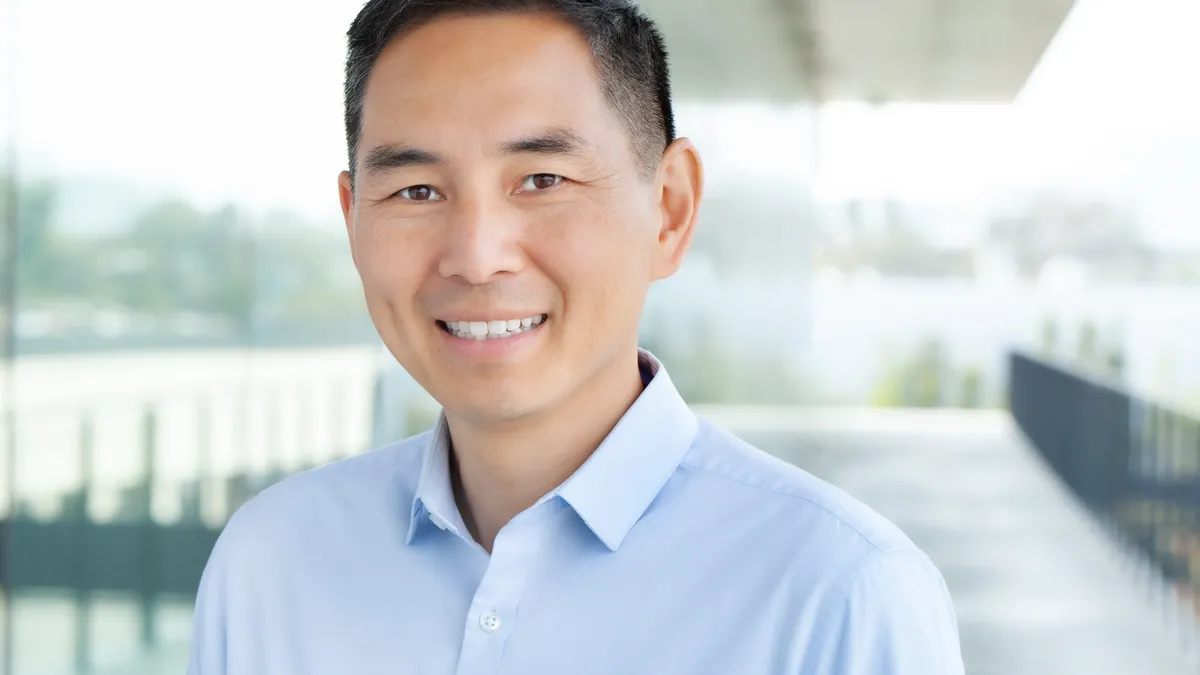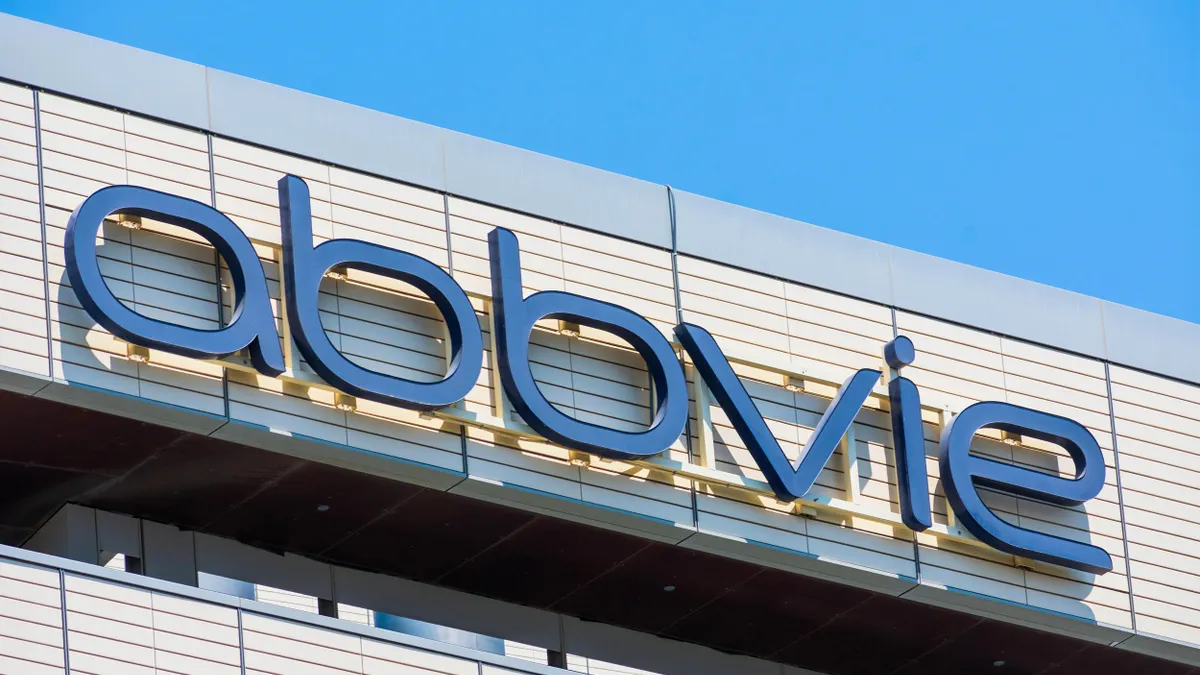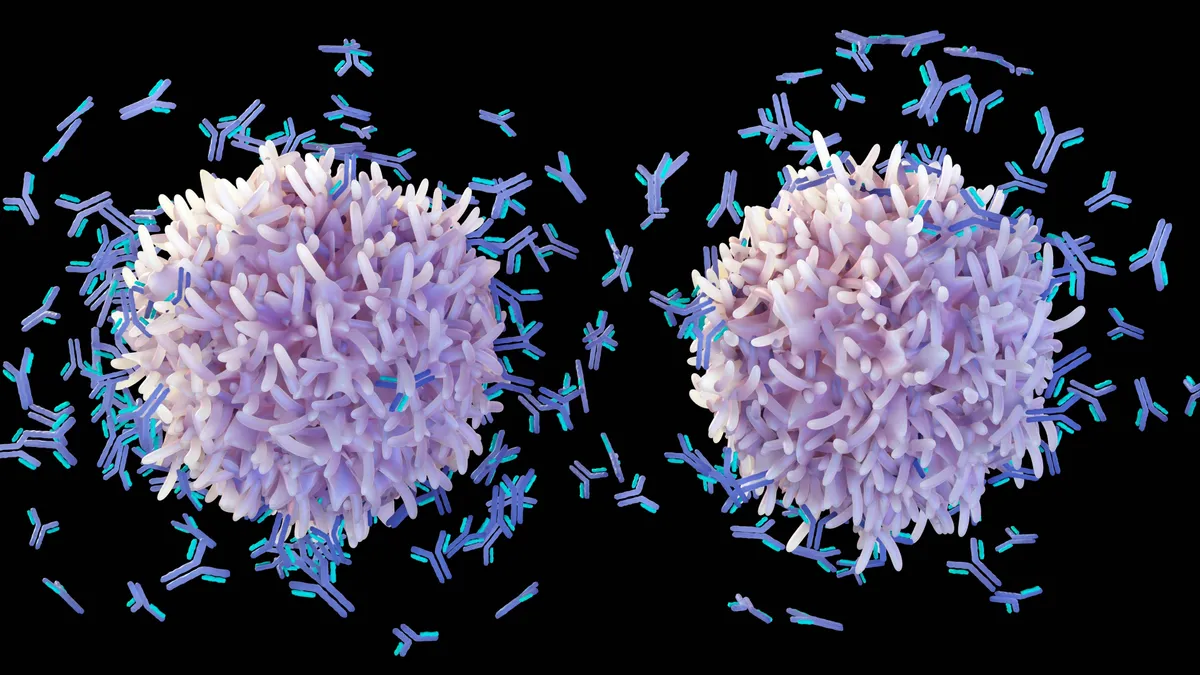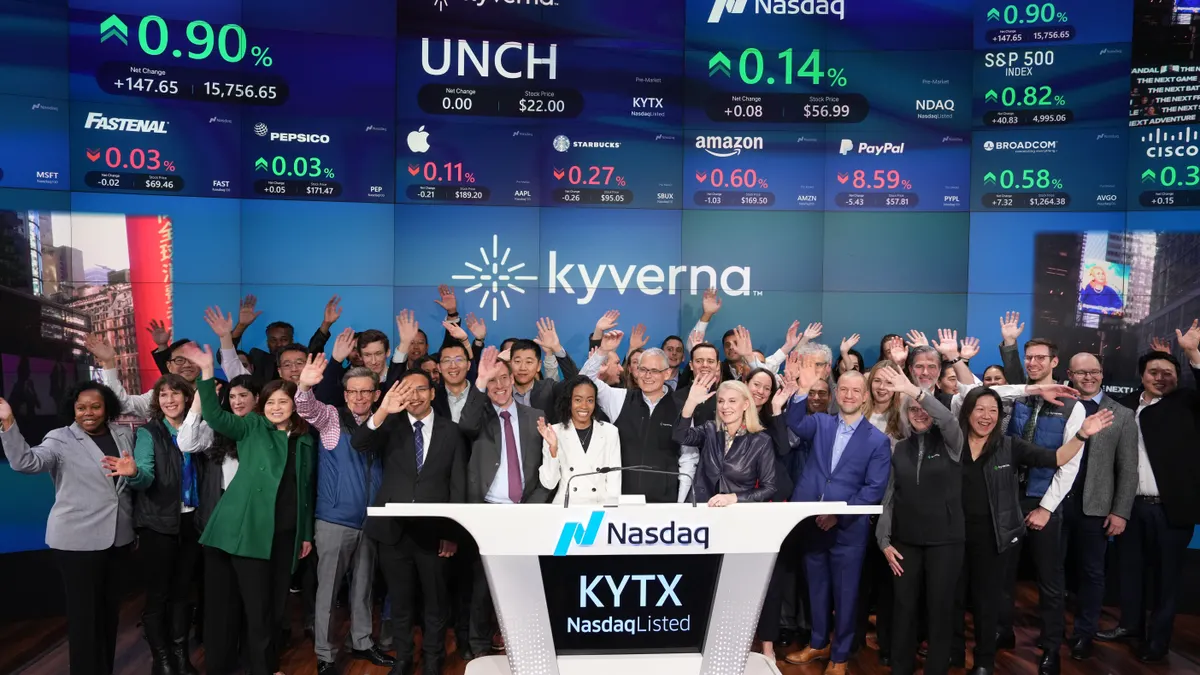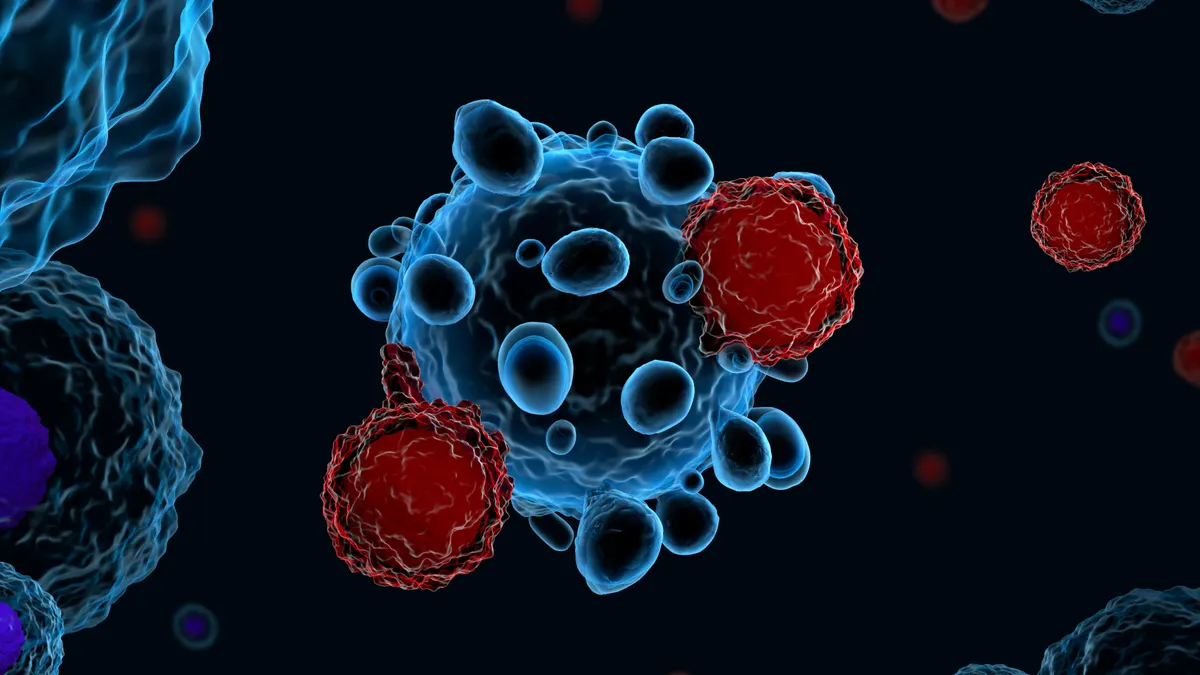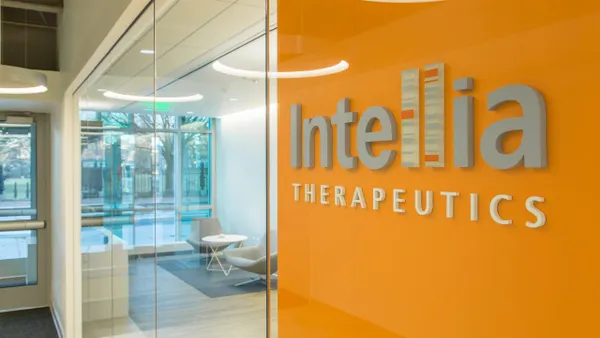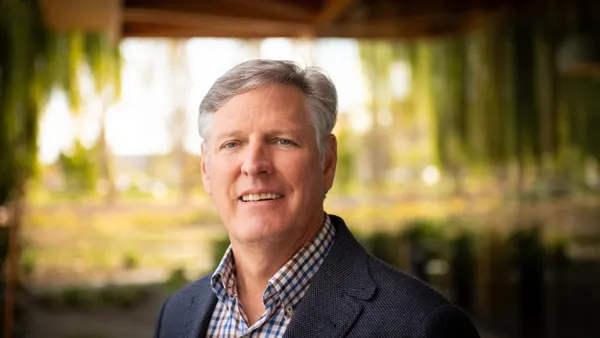Dive Brief:
- Candid Therapeutics, a new biotechnology startup with plans to develop antibody drugs for inflammatory diseases, debuted Monday with more than $370 million in funding.
- The startup amassed its pipeline by buying two private biotechs, Vignette Bio and TRC 2004, that had recently acquired rights to cancer drug prospects from China. Candid now owns rights to those drugs — a pair of so-called T-cell engagers — and should start its first clinical trials in inflammatory conditions next year, said CEO Ken Song.
- Candid raised $206 million on its own and, through the merger, now also has the $165 million in combined funds previously secured by Vignette and TRC 2004, according to Chief Financial and Business Officer Arvind Kush. The funding enables the company to operate for several years and be “opportunistic” in pursuing a potential initial public offering, added Song, whose previous company, RayzeBio, was acquired by Bristol Myers Squibb in December.
Dive Insight:
Candid’s launch is indicative of how growing interest in cell therapy for autoimmune diseases has expanded to include T cell engagers, too.
Research from scientists in Germany showed that cellular medicines can lead to lengthy remissions for certain chronic conditions by wiping out malfunctioning B cells. More than a dozen clinical trials testing autoimmune cell therapies have since begun. Others could soon start as well.
Song has paid close attention. After selling RayzeBio to Bristol Myers, he formed a shell company, Candid, staffed it with a management team and searched for drugs to build a biotech around. He found the cell therapy research captivating, but mostly because it provided a blueprint for a therapeutic strategy that could have “transformative” impact, he said.
In Song’s view, cell therapy is ill-suited to deliver that impact. Between high production costs and the need for chemotherapy-based preparatory regimens, “I never really felt that cell therapy would be a commercially viable approach” for autoimmune disease, he said.
Song instead believes T-cell engagers, or dual-targeting antibody drugs, are a better solution. He approached Vignette and TRC 2004 while they were cutting deals for two such candidates, and convinced them to have Candid’s team develop those drugs under one roof.
Like cell therapies, T cell engagers can be designed to target B cells. But they’re administered more conveniently, don’t require chemotherapy conditioning and are easier to manufacture. The approach has shown promise this year, too. Case reports published in the European Journal of Cancer and The New England Journal of Medicine describe encouraging results in autoimmune disease patients given T cell engagers typically used for cancer.
A handful of companies have already shown interest. Roche has two medicines in early testing. Cullinan Therapeutics and IGM Biosciences are starting trials. Zenas Biopharma, which filed to go public recently, is also in the mix. And Merck & Co. recently paid $700 million to acquire a drug it sees as having potential in several inflammatory conditions.
All of these projects are early. T cell engagers haven’t yet proven they can be as effective as cell therapy in autoimmune disease, or deplete B cell counts as thoroughly. “We’re still at the starting line,” Song said.
Candid, though, bets it can catch up. The two drugs it licensed have completed Phase 1 testing in cancer indications and should be ready next year to begin trials in people with autoimmune conditions. The two drugs target different proteins — BCMA and CD20 — on the surface of B cells. Candid expects to add more to its portfolio in the future.
“I think it is really just a matter of time before the industry at large comes to realize that T cell engagers are probably the right horse to bet on [for] autoimmune disease,” Song said.



